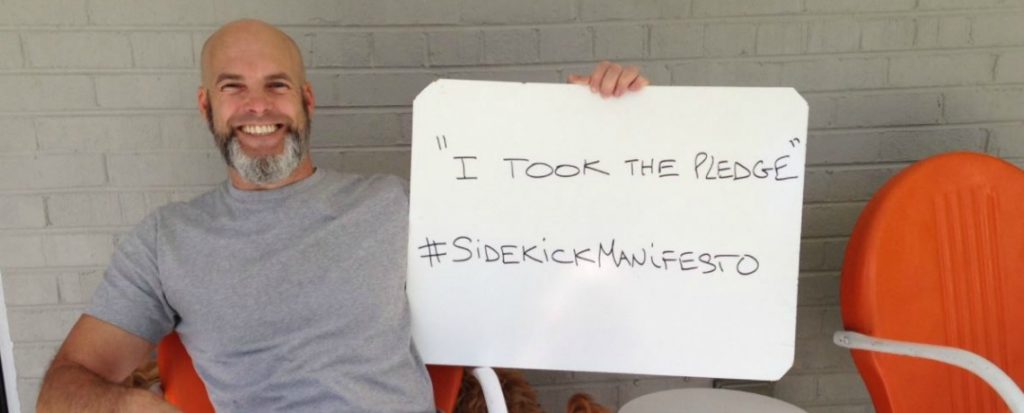What’s your role in the story of poverty’s end? Are you the hero, or are you the sidekick?
That’s the question UMW Associate Professor of Economics Shawn Humphrey asked two years ago before crafting the “Sidekick Manifesto,” a statement that calls for a supportive role – as opposed to a leading role – in the fight to end poverty. Today, the International Day for the Eradication of Poverty, the manifesto is as important as ever and marks a unique perspective in an increasingly global conversation about social justice.

The founder of the Two Dollar Challenge, Month of Microfinance, Poverty Action Conference and La Ceiba Microfinance, Humphrey has been at the forefront of global social issues since he stepped foot on Mary Washington’s campus. Diverging from mainstream approaches to ending poverty, Humphrey’s thought leadership, which he shares on his blog, Blue Collar Professor, focuses on the strength of partnerships and long-lasting change in developing countries.
Writing the Sidekick Manifesto with the critical input of alumni who have worked on the Two Dollar Challenge and La Ceiba, Humphrey calls the work a “compilation of the lessons we have learned while trying to make a responsible difference in the lives of those who are less powerful than ourselves.”
Sharing the essence of the manifesto, Humphrey wrote:
“One in ten people live on less than $1.90 a day. This statistic has spurred many of us to take steps to end global poverty. These steps have included: mission trips, orphanage tours, buying a pair of TOMS shoes and more. At their best, they do not work. At their worst, they create dependency, erode dignity, squander resources and crowd out local leaders who are in a better position to end their own poverty. In the story of poverty’s end, we cannot be heroes. We can only be Sidekicks. The manifesto shares how.”
Laura Dick, one of the UMW alumni who provided feedback on the creation of the manifesto, emphasizes the directional value of the manifesto.
“The manifesto is crucial because it helps delineate what, specifically, it means to not “be a hero” in ending global poverty,” said Dick. “The manifesto is a positive statement about what our role can be, rather than simply being a list of things it cannot.”
Leading up to October 17, UMW students and faculty joined the more than 200 people who have taken the pledge to be a sidekick by filling out the online form and sharing their support on social media.
“The pledge makes us more mindful,” said Humphrey. “As UMW pivots more into the social justice space, we can start a conversation about a more conscientious movement.”
To view the manifesto or take the pledge, visit http://sidekickmanifesto.org/ and share your pledge on social media with #SidekickManifesto.

